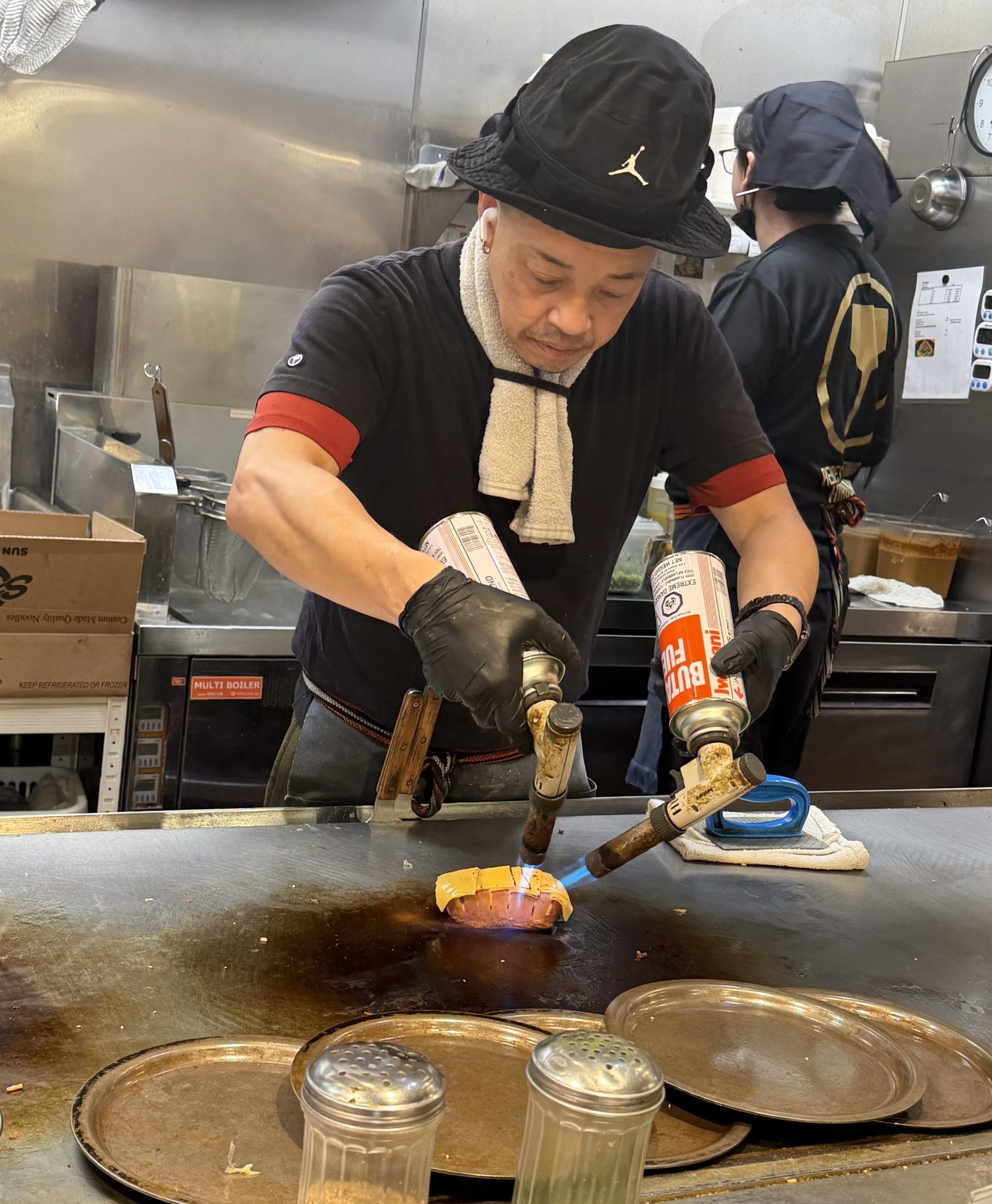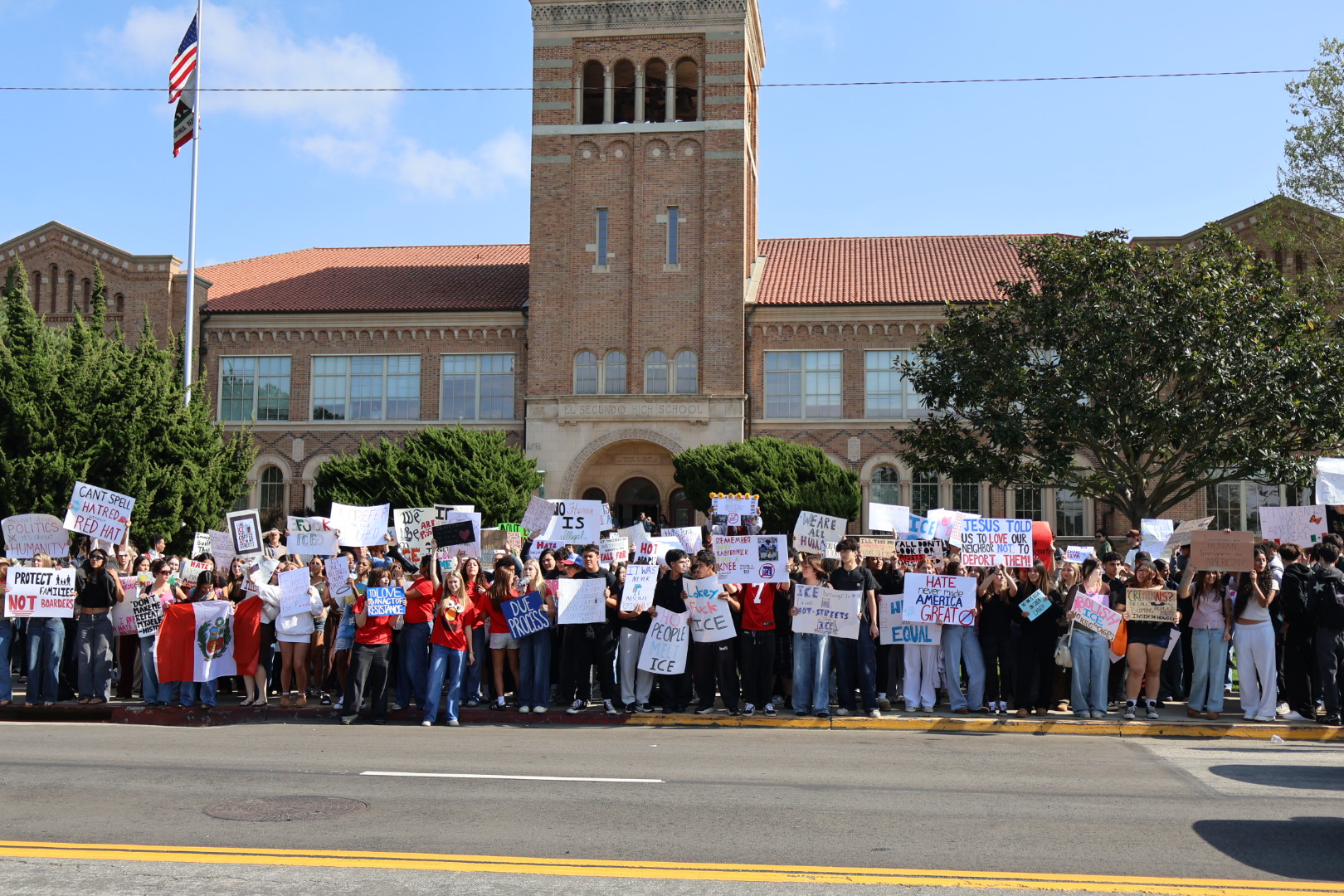Former Hermosa Beach mayor Jeff Duclos makes the climate crisis locally relevant, changing the world one presentation at a time

The man was an exterminator. He was spraying a thin film of pesticides along the greenbelt, a three-and-a-half mile stretch of shrubs, flowers and trees on Valley Drive, where many people, including Hermosa Beach resident Jeff Duclos, took their morning walks. Duclos saw what the exterminator was doing, and something stirred inside him. For him, the blatant spraying of pesticides near his home was a harbinger of local environmental malaise. He had to do something about it.
Within weeks, and in collaboration with local environmental groups Volunteers and Organizations Improving the Community’s Environment (VOICE) and the City of Santa Monica’s Environmental Division, Duclos was able to implement a “pesticide free zone” in the Greenbelt between Gould and Pier Avenues. This success would mark the start of Duclos’ rallying for the environment.
“Are we going to be a liveable planet in the future or not?” Duclos remembers thinking to himself. “It’s an issue of ultimate survival. Of good management of resources.
Community roots
Duclos, pronounced “du-clo” (the “s” is silent), is now in an epoch of his life he calls “forced retirement.” The 69-year-old, 35-year resident of Hermosa Beach recently spent four days in Johannesburg, South Africa at a Climate Reality Leadership Corps training, led by Al Gore as an empirical follow-up to his seminal 2006 documentary An Inconvenient Truth. The Climate Reality Project works to raise awareness and motivate action to solve the climate crisis through campaigns and leadership trainings around the world.
Duclos has taken on many roles in his lifetime – an environmental activist, a university professor, an alternate commissioner for the California Coastal Commission, a public relations manager for Chuck Norris, and a former Hermosa Beach mayor and council member. He has surfed for decades, and his time in the water has made threats to the environment more salient in his life.
Ken Lane, a childhood friend of Duclos, spoke of the ongoing dialogue about environmental issues that he shares with Duclos while they are out surfing.
“When you’re waiting for a wave to come in, you’ll sit around talking,” Lane said. “We’re not talking about sports or politics, but about the environment, like the possibility of nuclear waste leaking out at San Onofre, and how it will affect the ocean. If the ocean’s affected than everything else gets affected.”

Chad Nelson, the environmental director of the Surfrider Foundation, highlighted Duclos as a jack of all trades.
“He can talk to a surfer at the beach and his fellow elected officials, and interpret the science and communicate it to the public,” Nelson said about Duclos, who served on the foundation’s board of directors. “Not everyone can do that, and he did it particularly well.”
As a rising environmental activist, Duclos got fed up with the lack of passion he saw on local boards and councils, so he took matters into his own hands. He was elected to the Hermosa Beach City Council in 2009 and served as mayor from April 2012 to January 2013.
“I had been standing before water control boards and city councils,” Duclos said. “And then I realized, no one up there even approximated the way I felt about issues. Nobody else is going to take the plunge. So I ran for city council.”
“In these days when the concept of public service is denigrated, he embraces public service as a tool for large scale change,” said Scott Brown, a fellow professor at Cal State University, Northridge who has shared an office with Duclos for five years. “That’s to be fully admired….Even running for mayor is asking for a headache. To take on those kind of headaches says a lot.”
Before he became involved with local politics, Duclos worked in public relations and started his own firm Von Jessen Duclos, a portmanteau of his wife’s maiden name and his surname. Duclos’s biggest client is martial artist and actor Chuck Norris. In 2006 and 2007, Duclos volunteered to accompany Norris on a morale-boosting trip to visit American troops in Iraq.
“We went to almost 40 bases and camps throughout Iraq, some on the Syrian and Iranian borders,” Norris recalled. “We shook hands and took pictures with more than twenty thousand military men and women on each trip. Jeff was a trooper himself, because the weather was over 100 degrees and we had to wear 80-pound flak jackets. At our age, getting in and out of helicopters was a real bugger.”

“We have to communicate this in a way that connects to the urgent need for action,” Duclos said. “That’s what’s missing. I’m not a scientist. I’m not an engineer. I’m just this guy, but I am a communication professional. I know it in practice. I know it in theory.”
Charles Lester, the executive director of the California Coastal Commission, recalled an instance where Duclos pushed for stricter environmental benchmarks at the National Golf Club Los Angeles in Rancho Palos Verdes. The club applied for a permit amendment to accommodate a new driving range and putting green, and Duclos, aware of the possible polluted runoff that golf courses can send to the ocean, championed to have outdated water quality restrictions at the golf course revisited during the amendment process.
“Jeff is clearly someone who’s got a lot of knowledge about environmental issues and coastal protection,” Lester said. “He has a great appreciation for technical nuances of environmental policies, particularly how to make things work in an urban area with sensitive resources.”
Duclos wants to take the climate issue “out of the realm of science” and “move it into the realm of social science”. He has given three presentations to local groups, such as the lifelong learning institution Omnilore, since returning from South Africa. His 134-slide Powerpoint presentation, personalised and tailored from the 444 slides provided to him at his Climate Reality training, is crafted to be locally relevant and to pull at the heartstrings of people from all walks of life. Slides of the ramifications of California’s extreme drought pepper his presentation.
“It’s a way of connecting these little dots to make people see that all these things are interconnected,” Duclos said about his presentation concept. “The geopolitical stuff that’s going on in the world; we can not disconnect that from these climate refugees, who have lost their environment.”
Living lightly
The need for environmentally conscious work by individuals is necessary now more than ever. According to the National Oceanic and Atmospheric Administration, 2014 is the hottest and driest year ever on record for California. This year’s average temperature for the state is 62.6 degrees Fahrenheit, a full degree warmer than the previous record set in 1934. Los Angeles’s average temperature this year is 65.5 degrees Fahrenheit, 3 degrees warmer than average.
Ninety-five percent of California has been declared in extreme drought. Drought conditions threaten fish and wildlife and inflate food prices. The state’s industries for produce such as avocados, almonds, and dairy – all water-thirsty agriculture – have been squeezed, and the Sierra Nevada snowpack, responsible for 75 to 80 percent of the state’s water, is diminishing as the planet warms.
“People like Jeff and other climate leaders who are public servants are great examples of local leadership leading solutions to climate change,” said Mario Molina, Climate Leadership Corps program director. “Federal congressional action is not necessary to act on climate change because many small communities are taking first steps toward a sustainable future in their communities. They are local examples of the type of global leadership that we need to solve this.”
Beach Cities Health District (BCHD) CEO Susan Burden was keen on Duclos’s ability for interdisciplinary thought and action. Duclos currently serves on the BCHD Liveability Committee.
“He understood the impact of policymaking and how it could impact health in the community,” said Burden, who has worked closely with Duclos to ban single-use plastic bags in the Beach Cities. “Not everybody understands that the way you design a street or the way a city is constructed has a direct line to how healthy people are.”

Duclos has found his calling, but realizes that the seeds of even the most urgent change take time to flower. As the adage goes, “The true meaning of life is to plant the tree under whose shade you do not expect to sit.”
Change starts at the individual scale, but Duclos points out that the summation of individual efforts promulgates change.
“It’s not about the profound act, it’s about the culmination of all these acts bending history in a certain way,” he said. “If we all join hands, we’re all powerful.”








